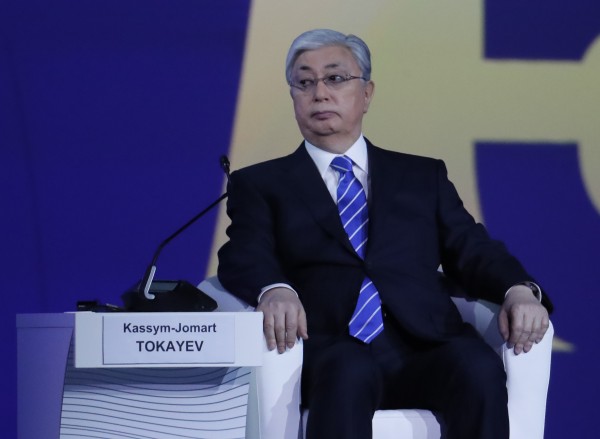Worrisome press freedom trends in Kazakhstan were discussed at a press briefing organised today in Vienna, Austria, by the International Press Institute (IPI) and the Committee to Protect Journalists (CPJ), just under a month after the launch of a CPJ report titled “Disdaining press freedom, Kazakhstan undermines OSCE”.
Opening the meeting, IPI Press Freedom and Communications Manager Anthony Mills noted that “Kazakhstan has not upheld the commitments it made in bidding for the chairmanship of the Organisation for Security and Cooperation in Europe (OSCE) – a position it now holds.”
Nina Ognianova, Europe and Central Asia Programme Coordinator for CPJ, and author of the report on Kazakhstan, noted that not only has Kazakhstan not kept its promises but the press freedom situation in the country has possibly degenerated further over the past two years.
The deterioration in the press freedom environment is mainly the consequence of two laws recently promulgated by Kazakhstan’s government, Ognianova added: an Internet law imposing on online content the same restrictions that affect print and broadcast media in the country; and a privacy law granting the same privacy protection to public and private persons, and basically ignoring the principle that public persons have to give up many of their privacy rights, at least with regard to their public function.
Restrictions on press freedom in Kazakhstan are not limited to the legal environment, explained Ognianova. Harassment of the handful of independent media outlets has led to the closure of newspapers because of lawsuits and high fines for libel charges, the imprisonment of at least one journalist, as well as strong pressure on printing houses to refuse to print independent newspapers.
The issues of newspaper licensing requirements and impunity in the attacks against journalists as obstacles to press freedom were raised by participants from the floor. Ognianova noted that, in a positive development, Kazakhstan has witnessed a relaxation of the licensing requirements for media outlets as well as a decline in physical attacks against journalists. In addition, although the murder of Kyrgyz journalist Gennadiy Pavlyuk, found dead in Kazakhstan in December 2009, has yet to be solved, “there has been some progress in the investigation,” said Ognianova.
However, with regard to licensing, in spite of some progress, the problem persists because media ownership is not transparent. Media outlets are often owned by holding companies and it is not clear who controls them or how close they are to the government. “The fact is that there are private media outlets, but very little plurality of views expressed,” Ognianova noted.


